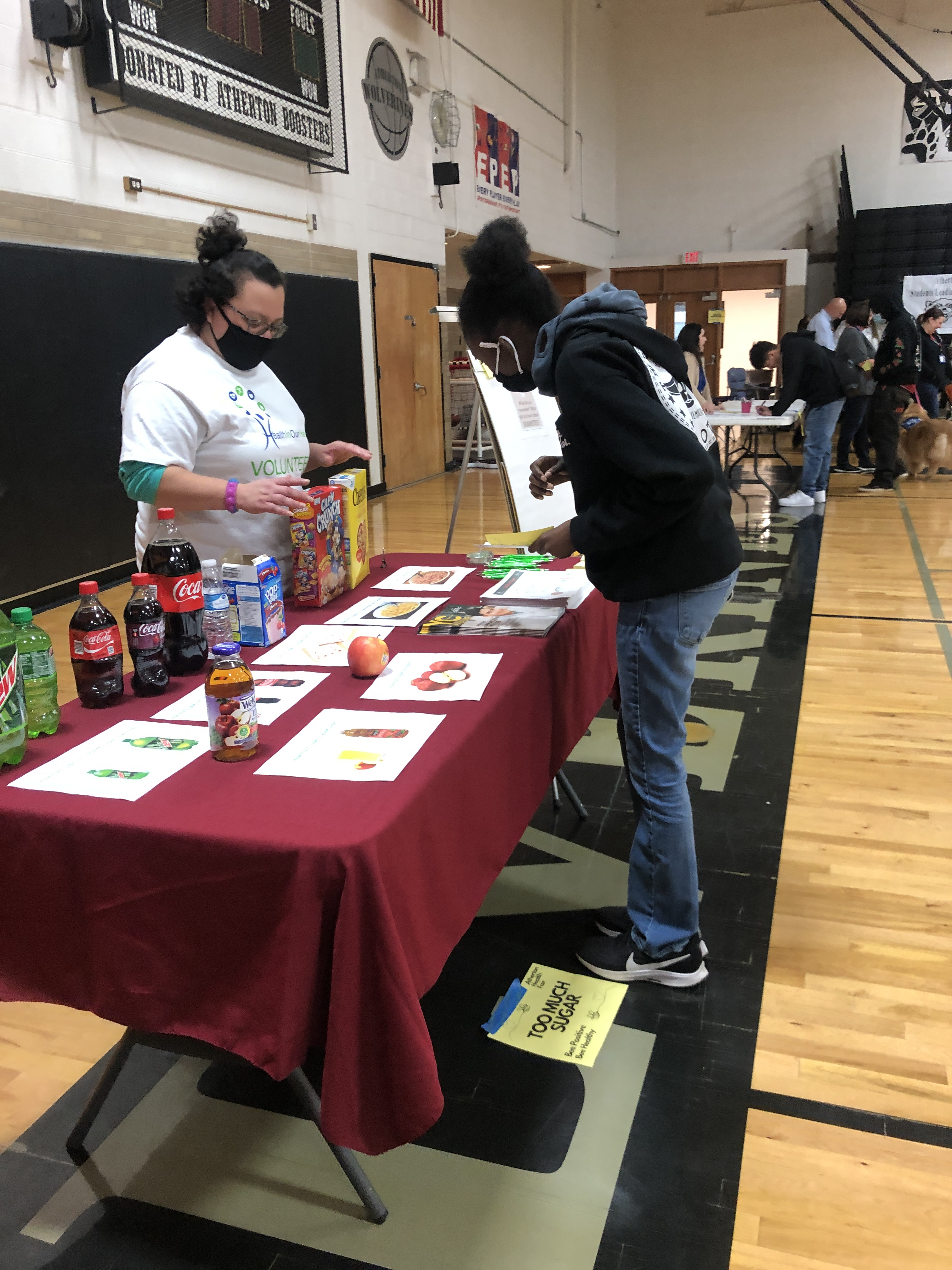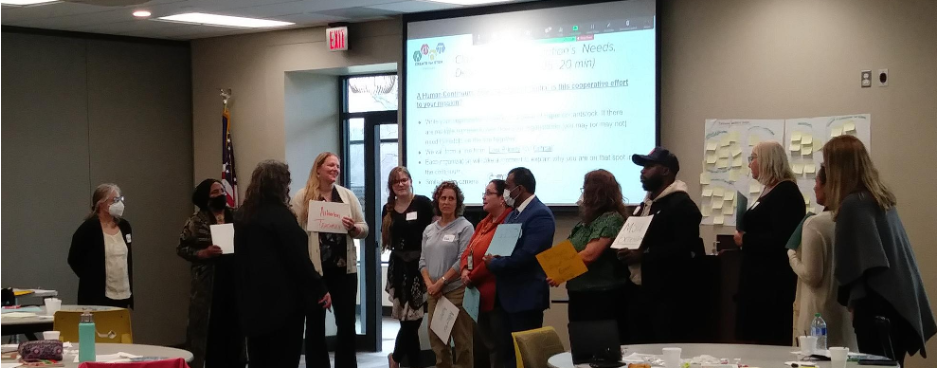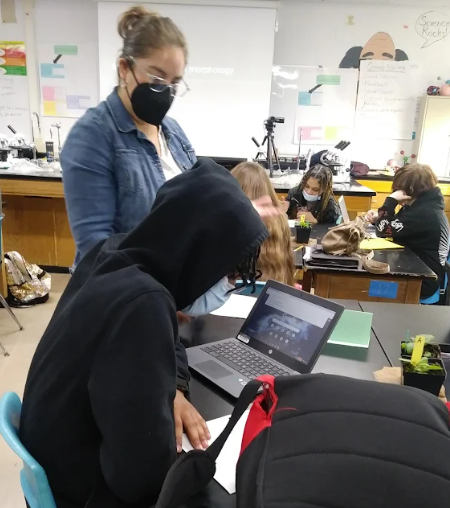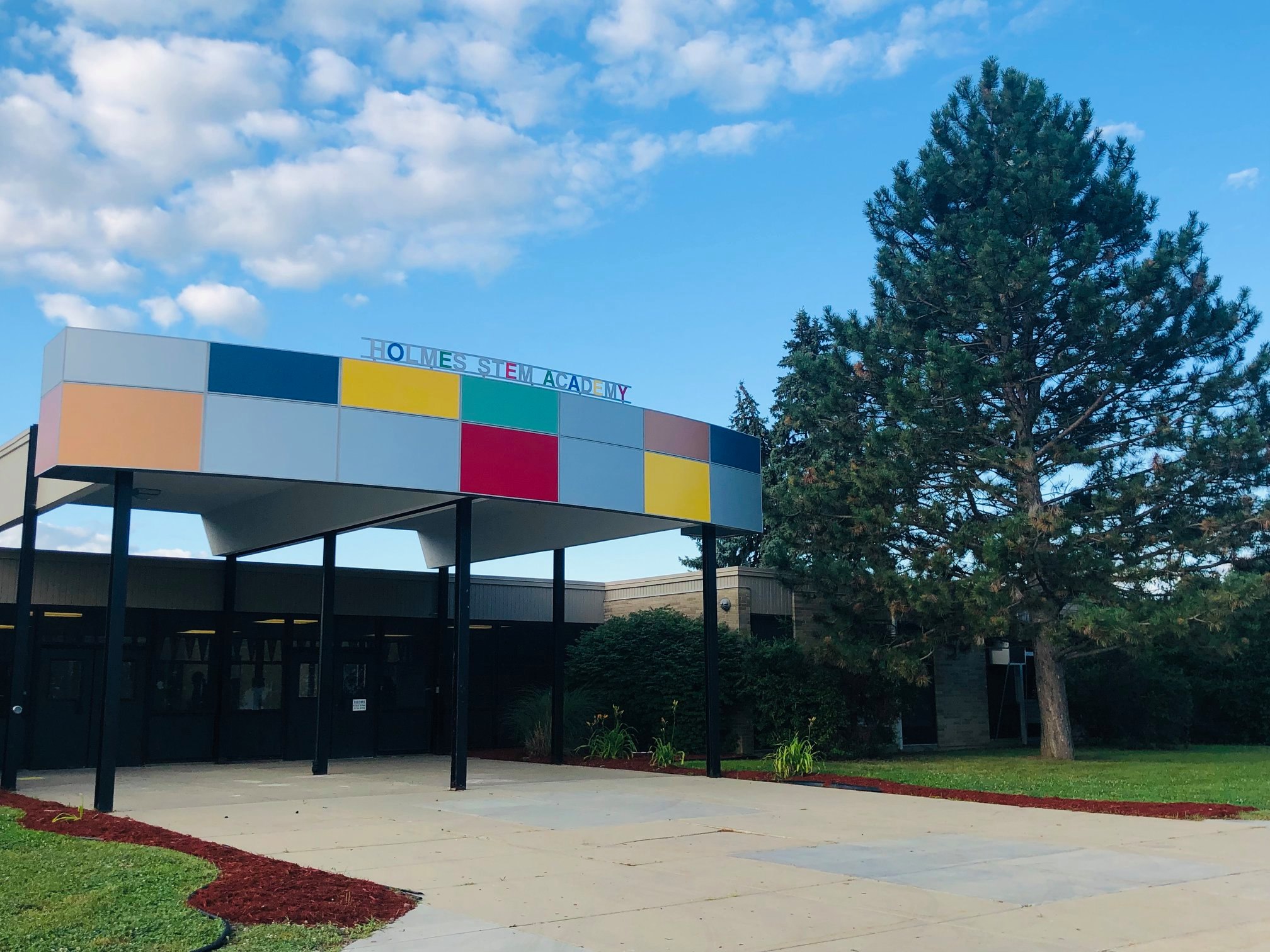News
Atherton Community Schools earns a grant to further HiOH Curriculum

This summer Atherton Community Schools was one of 16 schools which received a grant from the State of Michigan to expand STEM programs. The $10,000 grant will engage 195 middle and high school science students in project-based, place-based learning through its “Health in Our Hands” curriculum. Through this curriculum, students are introduced to a variety of STEM careers. Funding will support health summits events where students will present their research to family and community members, and provide professional learning for science teachers.
HiOH connects the science classroom to the community to give youth and adults an understanding of modern concepts in genetics. Designed to meet the Michigan Science Standards, HiOH curriculum uses Community-Inspired Project Based Learning, Students Investigate critical community health concerns and use these real-world contexts to appreciate the importance of both genetic and environmental factors in their risk for disease.
Atherton Wolverines 7 - 8 graders will learn about Diabetes and Substance Use Disorder (SUD) this Fall. Seventh graders meet Monique by video, a girl diagnosed with Type 2 diabetes. They investigate how lifestyle options for healthy foods and exercise help prevent or reduce diabetes and answer the question “What controls my health.”
Eighth graders are guided through a journey to figure out how thrill seeking evolved as a survival mechanism. But because of environmental changes and modern lifestyle, thrill seeking can sometimes lead to addiction, misery and even death.
Through this grant, Atherton Community Schools and Health in Our Hands join a state-wide collaborative to develop a “Playbook”, a framework of strategies based on both research and practice, for building STEM project-based and place-based learning in K-12 schools and districts to ensure high-quality STEM experiences for students.
The grants are a collaborative effort of the Michigan Department of Environment, Great Lakes, and Energy (EGLE) and the Michigan Department of Labor and Economic Opportunity's (LEO) MiSTEM Network to expand freshwater literacy and place-based STEM education and to support innovative STEM 3-P (problem, place and project-based) learning.
Atherton Wolverines Learn About Taking Care of Themselves

The first annual Student Health Fair took place in the gymnasium of Atherton Jr/Sr High School on Wednesday, April 27, 2022. Over 350 7th-12th graders participated. Curriculum Director Tina Case invited members from the Health in Our Hands-Flint/Genesee Partnership to participate and provide hands-on activities to engage the students during the event. Commit 2 Fit, Health Alliance Plan and Health in Our Hands (HiOH) were three of ten community partners who attended the health fair.
HiOH engaged the students in an activity called “Too Much Sugar.” which aligns with the middle school curriculum unit on Type 2 diabetes: “What Controls My Health." In “Too Much Sugar” Renee Bayer, Principal Investigator and Maria Salinas, Project Coordinator with Health in Our Hands (HiOH), showed the students the common breakfast and snack items and invited to compare the sugar content in their food (Captain Crunch vs Cheerios) and their drink (Coke vs Mt. Dew). Students were surprised to find how many of the foods they eat exceed the recommended limits for added sugar in their diets (25 grams per day for women and young people). They were glad that an apple, while containing sugar, is natural sugar and not counted against the added sugar amount they eat.
Commit to Fit (C2F) and Health Alliance Plan (HAP) who are HiOH community partners were also onsite to provide healthy lifestyle activities to engage the Atherton Wolverines. Alaina Larrea with C2F engaged the students in physical activity and also had a too-much-sugar activity which involved actual sugar that was measured out to show the students how much sugar is in what they are consuming. Omar Sims with HAP encouraged physical activity through providing snacks as students demonstrated jumping jacks and push ups. Other organizations provided stress relief activities such as golf, fishing, and dog therapy.
Students were also invited to go down memory lane and post comments about what they remember or learned from "Monique's Story" about a teenager who is experiencing Type 2 diabetes that is part of the “What Controls My Health” curriculum. Students mentioned the several types of diabetes, genetic and environmental risk factors, and the importance of lifestyle changes.
HiOH Sustainability Retreat 2022 Brings community, school administrators and teachers together

Health in Our Hands aims to sustain the project in Flint/Genesee after the grant funding ends in 2024. This goal was envisioned by the HiOH-Flint/Genesee Partnership when it submitted the grant proposal in May 2018 to our funder, the NIH-Science Education Partnership Award. But what will it take to move from a project, to a form that can be self-sustaining? It has not been an easy process, especially given planning such an endeavor during the Covid19 pandemic. But the partners established a sustainability committee and chose a toolkit to guide our work. An important step was holding a face-to-face retreat to discuss in depth how to move forward.
On April 13, 2022, 16 partners (including two by Zoom) attended the HiOH Sustainability Retreat at the Genesee Career Institute hosted by partner Michael Pillay from the Genesee Intermediate School District. Two teachers volunteered to attend and provided their perspectives from the classroom. We started by considering our journey beginning with our first project funding in 2006 through today.
Our first activity was to ask ourselves: What does HiOH look like 5 years from now? Our responses highlighted Partnership, Parents and Family, Community Health, Growth and Expansion in Schools, and Student Voice and Engagement. Partners discussed mission alignment and what they need to stay involved. We formed a “Human continuum” to demonstrate, “How essential is this cooperative effort to your mission?”
Following the retreat, members reflected on the importance of building relationships, reflecting on our partnership, and sharing together where we are going. One partner stated, “I’m energized seeing people who share a common mission supporting healthy youth development.
Monkeyflowers growing at Atherton Jr/Sr High School

About seventy high school students from Atherton Jr/Sr High School are participating in a new curriculum from “Health in Our Hands (HiOH): Mystery of the Monkeyflower.” Mystery of the Monkeyflower is a 10 - 12 week, NGSS-aligned, project-based learning unit for high school lifescience. Students use a monkeyflower plant experiment and a graphic novel developed to learn how traits evolve over time through natural selection. The plant experiment is based on the research of Dr. David Lowry, plant biologist at Michigan State University, who is studying how different environments affect the development of different traits in the population of one species of monkeyflowers (Mimulus).
During their weekly visit to Ms. Lauren Jones Science class on February 23, 2022, the HiOH team observed students excited to share how they measure their plants and record the data they collect in numbers and drawings. This activity is part of Lesson 3 - How do the parts of the monkeyflower work together to keep the monkeyflower plant alive? Dr. Hildah Makori and Dr. Consuelo Morales answered students’ questions about making measurements and recording the data collected from their observations of the Monkeyflowers.
National Drug and Alcohol Facts: Week Flint/Genesee County Partnership

National Drug and Alcohol Facts: Week Flint/Genesee County Partnership
Genesee County Prevention Council (GCPC), Genesee Health System (GHS) and Health in Our Hands (HiOH) partnered to plan activities for the National Drug and Alcohol Facts Week (NDAFW), March 21 through March 27th. The NDAFW through the National Institute on Drug Abuse is all about “Linking teens to facts that SHATTER THE MYTHS® about drugs and drug use.”
GHS created an infographic linked to a Kahoot! Quiz. The infographic highlighted local data about drug and alcohol use by Flint/Genesee students. Most students reported that they do not use drugs or alcohol. Highlighting these results support a positive community norming approach.The Kahoot! which is a game-based learning platform, questions quizzed the students' knowledge about drugs. These questions were also shared on social media via GCPC and partner Facebook and Twitter pages. HiOH distributed copies of posters of the infographic to share with their teachers at Atherton Jr/Sr High School, Flint Holmes STEM Academy Middle School, and Flint Southwestern Academy.
The NDAFW partnership also created a video to lift youth voices by spotlighting Flint 8th grade students who studied substance use disorder in their science class. The students have just completed the Health in Our Hands (HiOH) curriculum: “How can looking for thrills make me miserable”? The students became very interested in phone use and gaming (video). Their teacher, Ms. Teri Jones organized a Substance Use Disorder Health Summit for students to present their findings and recommendations. Following the Health Summit, the GCPC videographer and HiOH Program Coordinator, interviewed the students about their research question “How does the use of technology affect my well-being?” They surveyed their peers and family members and kept logs of their technology use. They concluded that technology use can have negative effects on their well-being. You will learn about their findings and feedback in the video “Flint Youth Take Charge of Their Well-Being.”


